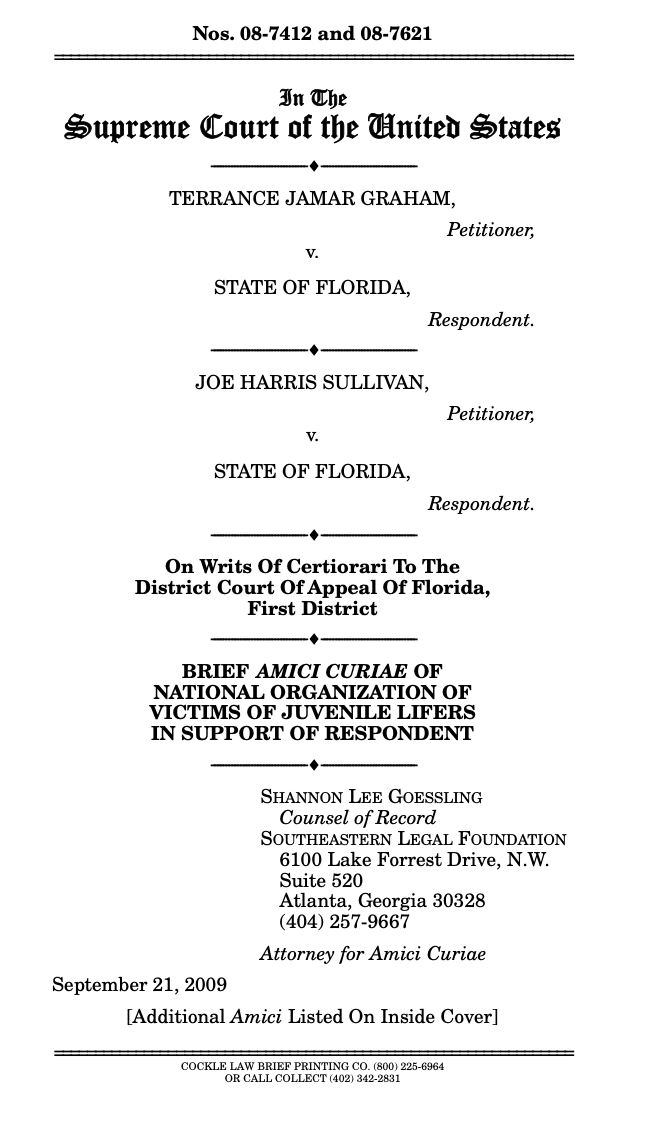
Summary of Argument
Despite numerous advancements in the criminal justice system, crime victims remain second-class citizens. Today, this Court is being asked to engage in a callous bait-and-switch by improperly extending its decision in Roper v. Simmons to declare that life without parole for violent juveniles offends the Eighth Amendment. We urge this Court to remain faithful to the Constitution of the United States and its own jurisprudence, which clearly differentiates between the sentence of death and all others, including life without parole. An overwhelming national consensus exists that a life without parole sentence is appropriate and constitutional for juvenile offenders who show an exceptional disregard for human life. Courts, legislatures, and American people have strongly approved of these sentences as an effective and lawful device to deter juvenile crime and protect law-abiding citizens. These institutions understand that violent crimes are no less traumatizing to victims because the offenders are underage. A criminal justice system which categorically denies constitutional and proper sentences for juvenile offenders perpetuates no justice at all.